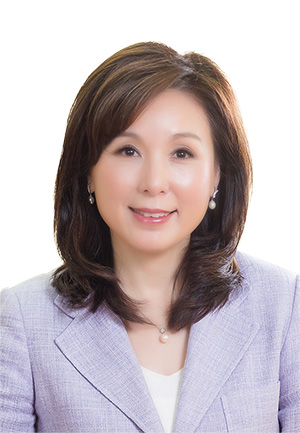How did your career start?
After receiving my PhD at the age of 26, I taught economics as a professor at National Chengchi University. During my tenure, I attended Harvard University and Stanford University as a visiting scholar. I also worked as a visiting professor at Peking University and Tsinghua University.
What was your next move?
After ten years as a faculty member, I was invited to serve as chairman of the National Youth Commission of the Executive Yuan. Later, I was elected as a legislator. After that, I served as vice chairman of the Financial Supervisory Commission, supervising and managing all financial industries including banks, securities, insurance, and then took over as chairman of the Taiwan Bank and Taiwan Financial Holdings. And then I moved forward into business, I was offered the opportunity to work with Shin Kong Financial Holdings Group and served as vice chairman. So all in all, I have worked in a wide range of fields including academia, government departments, the Legislative Yuan, state-owned enterprises and private financial enterprises.
How did you move into business?
When I was at the end of the term of chairmanship at Taiwan Financial Holdings Group and Bank of Taiwan, two private financial companies invited me to serve at their companies, and at the same time I was invited to serve as the vice president of National Chengchi University where I had taught previously. This was a choice for two different directions in life. After thinking about it, I finally decided to accept the invitation of Shin Kong Financial Holdings Group. At that time, Shin Kong Life was facing great operational difficulties. The insurance industry has a great social responsibility as the provider of assistance when policyholders face the most vulnerable moments in life, such as old age, major injury, and death. If I could help this life insurance company, which had more than 3 million policy holders, to develop positively it would be a very meaningful contribution to society, so I decided to accept the challenge.
How valuable is this experience of working across different sectors?
I feel that having experienced the industrial, government and academic worlds, as well as working in roles representing public opinion, I have a deep understanding of the strengths and blind spots in each field.
That's why I believe that possessing a more diverse background will definitely help us think and judge more comprehensively.
Can this "revolving doorway" benefit universities?
Undoubtedly. If scholars work in government or business and return to academic circles, they are highly valued because they can provide academic and practical perspectives especially in the fields of business or social sciences. I believe such cross-disciplinary exchanges will in the future become key for solving more complex problems including social problems.
How closely do the various sectors work in Taiwan?
The interaction is relatively close compared with Hong Kong. It is not unusual for university professors to serve in government departments, or to serve in the corporate world as independent directors. The schools also encourage professors and the business community to cooperate strategically, such as setting up research and development centres.
What advice do you have to achieve mobility between various sectors?
When there are opportunities for cross-departmental development, be confident in yourself and don't be afraid to take this step. I personally Holdingsthink that the most important thing to learn at school is to develop a clear logic, the motivation and ability to learn new things in-depth, and to embrace the culture of new teams with humility; with these conditions, I believe one has the basis of a transferrable skill set.
If you were starting out today, what would be your first move?
I would still look to the education sector. As a faculty member you have the opportunity to deepen logical training, independent data collection, and problem solving. I feel that systematic thinking and independent judgment is the foundation for performing well, no matter which field you might work in.
How important is international experience?
I would be happy to help students gain international experience. That could be studying abroad, or in learning situations where there are multi-national teachers and an open learning environment on campus. In the face of technological innovation and free trade environments, any outstanding talents, whether in employment or entrepreneurship, must frame their vision globally and not confine themselves to a single country.
How well are universities attuned to producing graduates for the digital era?
There's no doubt that the new era requires new abilities of our students. Firstly, the ability to master and use information. Second, to transform information into useful knowledge, which in turn involves skills such as clear logic, computing knowhow, and a basis in professional knowledge. Third, the interest to develop lifelong learning, often across domains. Fourth, team training, because our current era emphasises a combination of speed and working with complex cross-domain tasks.
What career tips do you have for our undergraduate students?
For your first job, don't pay too much attention to the money or position. The key point is to identify work that has potential and interest for you as soon as possible, and to invest in work where your performance is naturally outstanding. Each position is an opportunity to accumulate experience for the next job, so don’t be afraid to experiment. The cost of failure when you are young is very low. But the lessons learnt are assets for the future. Even if you don't like your current work, you should earnestly invest in it, because with serious input from your side you can always learn something.


